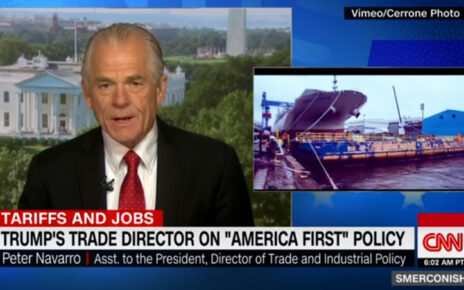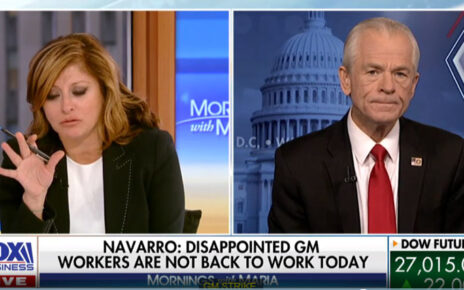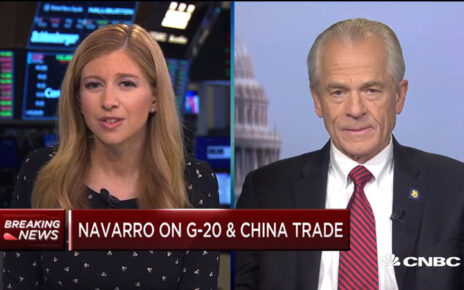Trump’s top trade adviser says Mexico tariffs ‘may not have to go into effect’ | CNN Politics
The top trade adviser to President Donald Trump said Wednesday that the threatened tariffs against Mexico “may not have to go into effect” if the country can demonstrate it’s taking steps to halt the flow of undocumented migrants across the southern US border.
The top trade adviser to President Donald Trump said Wednesday that the threatened tariffs against Mexico “may not have to go into effect” if the country can demonstrate it’s taking steps to halt the flow of undocumented migrants across the southern US border.
Peter Navarro’s comments to CNN’s Jim Sciutto on “Newsroom” came hours ahead of a meeting between top US officials, including Vice President Mike Pence, and Mexico’s foreign minister to discuss the tariffs and immigration.
“Right now, the Mexican government makes money off illegal immigration. After the tariffs are put in place, the Mexican government will bear a cost of that. We believe that these tariffs may not have to go into effect precisely because we have the Mexicans’ attention,” Navarro said. “Vice President Pence will be meeting with them today, Secretary of State Pompeo and (US Trade Representative) Robert Lighthizer. I think let’s stay calm and look at the chess board here.”
White House officials told CNN on Wednesday that they’re not expecting a deal to come out of the meeting between the vice president and Mexico’s foreign minister. Instead, one official said, the meeting would be “an opportunity for the Mexican government to show what more they’re doing” to avoid the tariff on imports.
The White House officials said that during the meeting on Wednesday, US officials are expected to convey that the President is serious about his threat to impose tariffs.
But the President is facing stern warnings from Senate Republicans that they will not support the Mexico tariffs, raising the possibility of a rebuke over the surprise move announced last week.
Trump on Wednesday called on Mexico to do more to mitigate the flow of migrants to the border, saying “if they don’t, tariffs will go on and if they go high then companies are going to move back into the United States.”
He also repeated his false claim that the tariffs won’t impact Americans, arguing that they will prompt companies to move back to the US.
The move will, however, likely harm both the US and Mexican economies. An analysis by The Perryman Group, an economic consulting firm, suggested that more than 400,000 jobs in the United States could be lost.
Trump said on Tuesday that he was inclined to go ahead with the levies, set to go into effect starting next week.
“We’re going to see if we can do something. But I think it’s more likely that the tariffs go on and we’ll probably be talking during the time that the tariffs are on, and they’re going to be paid,” Trump said during a news conference alongside British Prime Minister Theresa May.
In the interview with Sciutto, Navarro outlined three demands he wants Mexico to meet in order to prevent the first round, a 5% tariff on Mexican imports, to the US from going into effect next week.
“They can commit to taking all the asylum seekers and then applying Mexican laws, which are much stronger than ours,” Navarro said. “That’s number one on my list.”
Navarro said he wants to see “a strong commitment from the Mexican government” to put resources on the country’s southern border, where he said it was much easier to control the flow of immigrants coming up from Central American countries. He added that America was likely to “help (Mexico) in any way possible,” with that effort.
The trade adviser said the third thing he wants to see Mexico do is stop the “corruption” he says exists in the country that makes it hard for Mexico to manage checkpoints that migrants pass through before arriving at the US border.
CNN’s Kaitlan Collins, Allison Malloy, Jeremy Diamond and Kevin Liptak contributed to this report.



